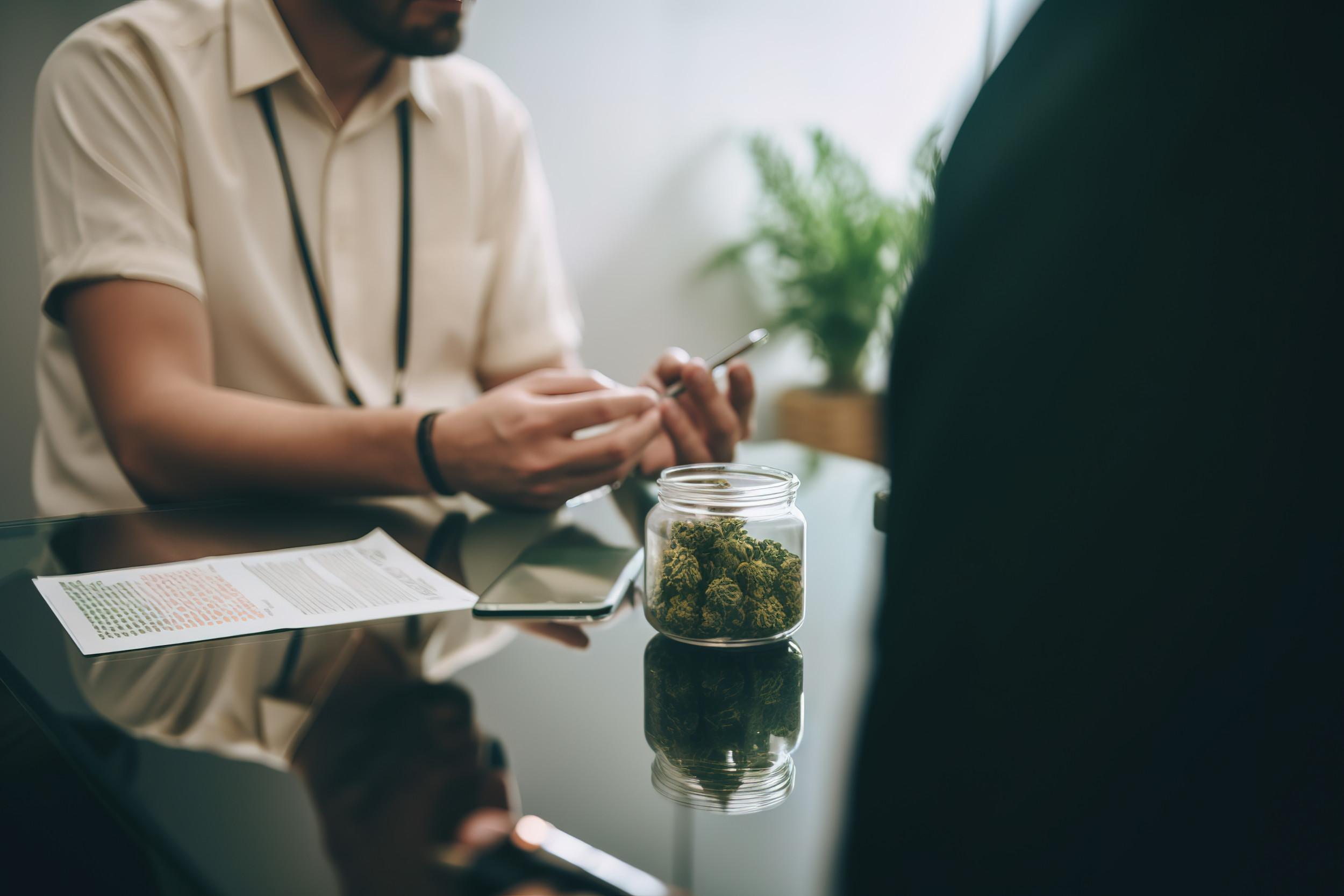
In my psychiatric practice, I've encountered patients turning to cannabis when they are in dire straits and feel they have exhausted all other medically indicated treatment options.
For these patients, using cannabis is an attempt to find relief and improve their quality of life when other treatments have been ineffective. They may have tried traditional prescriptions, therapy, lifestyle changes, or alternative holistic regimens without producing the desired outcomes.
While some patients report benefits from using cannabis, there is still ongoing research to fully understand its safety, efficacy, and potential risks. Deciding to use cannabis as a treatment option should always be made with the advice of a healthcare professional who can guide and monitor the patient's progress.
In this article, I will explore a brief history of cannabis in the United States, where the medical use of cannabis has high evidence, the economic benefits of cannabis legalization, and potential risks associated with cannabis use.
From Pariah to Promising: A Historical Shift in Public Perception
Early colonists brought cannabis over to grow hemp for rope, paper, and cloth. It wasn't uncommon for cannabis to treat cholera, alcoholism, epilepsy, and asthma. People also smoked cannabis recreationally.
What changed? As cannabis use was tied to an influx of immigrants in 1910, states began to impose laws against possession and use. In 1970, cannabis was declared a Schedule 1 drug, meaning it has no accepted medical use and a high potential for abuse.
The tables began to turn again when California legalized cannabis for medical use in 1996. Since then, 23 states, plus the District of Columbia, Guam, and the Northern Mariana Islands, have legalized recreational use, while 38 states have legalized it for medical use. All but three states allow CBD or low-level THC use. Interestingly, cannabis achieved legalization through legislative reforms at statewide levels despite its continued DEA Schedule 1 status and an absence of FDA approval.
Currently, cannabis research is relatively streamlined and well-controlled, but a major issue is that the cannabis being researched comes from a federally regulated supply. Products sold to consumers vary greatly, as different strains provide different effects, thereby limiting our understanding of the benefits and drawbacks of cannabis use.
Scientific evidence on cannabis efficacy varies by condition. While some conditions have high-level evidence from rigorous, evidence-based studies, others rely on lower-level evidence like case reports. This doesn't rule out cannabis for low-evidence conditions; it calls for larger, more rigorous studies for definitive conclusions.
The FDA has approved some cannabis-derived and synthetic cannabis-related drug products, including Epidiolex (cannabidiol), Marinol (dronabinol), Syndros (dronabinol), and Cesamet (nabilone), all of which are available as prescriptions from licensed healthcare providers.
CBD and THC are compounds in the cannabis plant. Although CBD products derived from cannabis are used in FDA-approved products, the FDA has not approved other cannabis-derived products. Unapproved cannabis and cannabis-derived products are being used to treat medical conditions. Still, the FDA has not reviewed data from clinical trials to support the safety and efficacy of unapproved products.
These unapproved products are being used to treat conditions such as:
- AIDS
- Epilepsy
- Neuropathic pain
- Multiple sclerosis
- Cancer and chemotherapy-induced nausea
Disorders with moderate- to high-level evidence for cannabis' efficacy in treatment include chronic and neuropathic pain, spasticity in multiple sclerosis, and certain seizure disorders. According to the NIH, cannabis or cannabis-based medicine can reduce pain by 50%compared to placebos. Additionally, approximately 40% of cancer patients use cannabis to treat pain during treatment. In a nation with an opioid epidemic, finding safer ways to relieve chronic pain is vital.
Researchers have found moderate-level evidence for the efficacy of cannabis treatment in patients with gastrointestinal distress, like diarrhea and/or inflammation resulting from irritable bowel syndrome. Patients with HIV or AIDS have also seen benefits, including increased appetite, weight gain, and reduced nausea.
Other research studies have shown low-level evidence for treating patients with glaucoma, PTSD, Parkinson's, dystonia, tics, and Tourette's. For instance, while cannabis has been shown to reduce intraocular pressure in glaucoma, this effect is short-lived and often accompanied by a reduction of blood pressure, which can lead to a reduction of blood flow to the optic nerve and subsequent vision loss in glaucoma patients.
Risks Associated with Cannabis Use
The risks of cannabis must be carefully studied so that they can be effectively mitigated in vulnerable populations. Cannabis is linked to cognitive impairment, including short-term memory, motivation, and attention deficits, worsened by frequency and duration of use. Studies show loss of hippocampal volume and greater cortical activation, indicating an inefficient brain.
Cannabis also disrupts the balance between cognition and emotions, affecting decision-making in stressful situations. It poses risks similar to alcohol, such as impaired driving. It can also exacerbate mood and anxiety disorders and increase psychosis risk in vulnerable groups.
While not as addictive as some substances, up to 10% of users meet the criteria for cannabis dependence. Interestingly, genetics research indicates that individuals with the valine/valine allele of the COMT gene are at higher risk for cannabis dependence and cognitive impairment.
The above data does not mean that the risks of cannabis use necessarily outweigh the benefits. Still, the pros and cons of cannabis use must be weighed very carefully in each situation on a case-by-case basis.
Closing Thoughts
For the medical field, cannabis legalization would expand access to cannabis for individuals who could significantly benefit from its therapeutic properties. Legalization could also encourage further research into new and existing medical applications of cannabis. Risks should also be seriously considered and weighed, from the possibility of impaired cognitive functioning to increased mental health struggles and the development of addiction in vulnerable patients.
Cannabis holds promise as a lifeline for patients who have exhausted all other treatment options, particularly for treatment-resistant medical indications. However, the medical community and policymakers must approach its integration into medical care with caution, ensuring rigorous research and healthcare professional guidance to mitigate potential risks.
Uncommon Knowledge
Newsweek is committed to challenging conventional wisdom and finding connections in the search for common ground.
Newsweek is committed to challenging conventional wisdom and finding connections in the search for common ground.





